Published: July 10, 2024 • Updated: October 2, 2025
Dealing with home foundation repair in Virginia can feel overwhelming—but you’re not alone. Many homeowners face issues like cracks in walls, uneven floors, or doors that won’t close properly, often caused by shifting clay soil and seasonal weather changes
In this Virginia home foundation repair guide, we’ll explain everything you need to know: how to recognize foundation problems, compare repair options in Virginia, and decide who to call for foundation issues.
Whether you need a simple home foundation fix or major structural foundation repair, you’ll learn the methods, costs, and tips to protect your home’s value and safety.
Understanding Home Foundation Repair in Virginia
Home foundation repair is the process of restoring stability to a home’s base when it’s weakened by settlement, shifting soil, or cracks. In Virginia, clay soils and drainage problems are common culprits, but tree roots and seasonal weather changes can also put stress on foundations.
Repairs range from sealing minor cracks to installing piers and wall reinforcements that provide long-term structural support. If damage worsens, calling a licensed foundation repair contractor ensures accurate diagnosis and long-term stability.
Early detection of the foundation problem signs and professional repair not only protects your home’s safety but also preserves its value.
Warning Signs of Foundation Problems in Virginia Homes
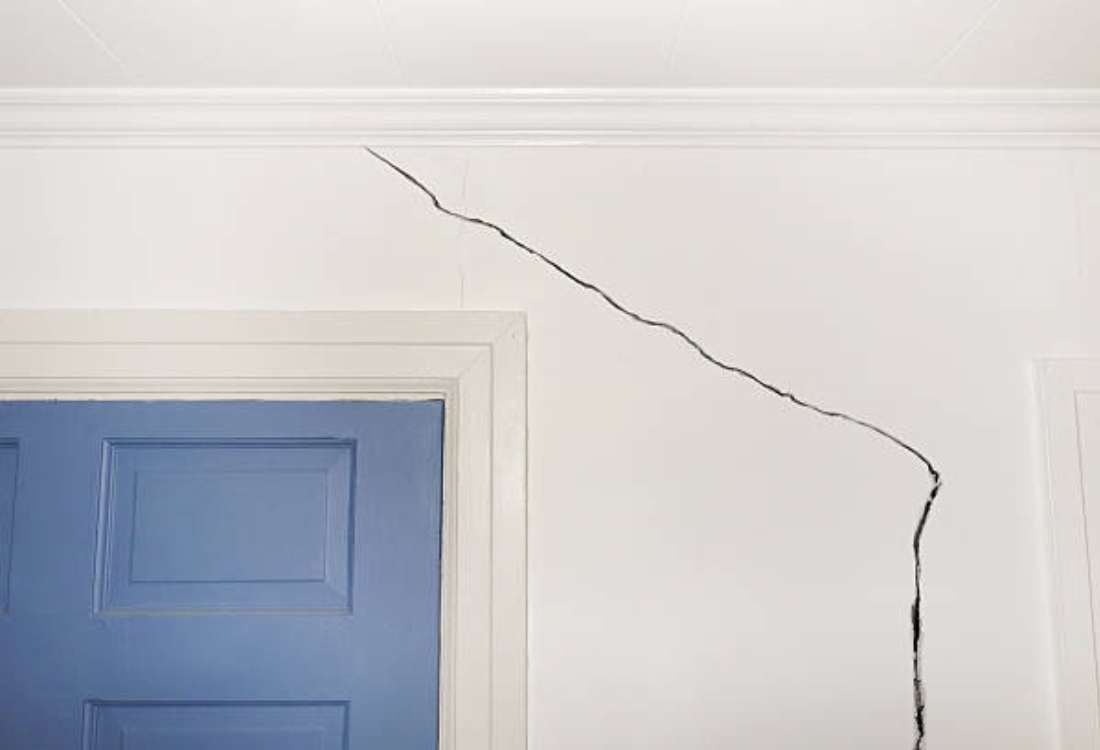
Catching foundation problems early can save thousands in home foundation repairs. In Virginia, shifting clay soils and seasonal weather changes often leave clues around the house.
Here are the most common warning signs to watch for before small issues become major repairs.
- Cracks in walls, floors & brickwork – diagonal or stair-step cracks usually signal movement.
- Uneven or sloping floors – sagging floors or tilting suggest settling beneath the home.
- Sticking doors and windows – shifting window or door frames, making them hard to open or close.
- Bowing walls & gaps – inward-curving walls or floor-to-wall gaps show pressure.
- Leaning chimney – chimney separation from the house indicates foundation settlement.
Catching these signs early can save thousands in repairs. The key is to understand what’s causing the damage. By learning the common causes of foundation problems in Virginia, you’ll know when a simple fix is enough and when it’s time to call a professional.
Common Causes of Foundation Problems in Virginia
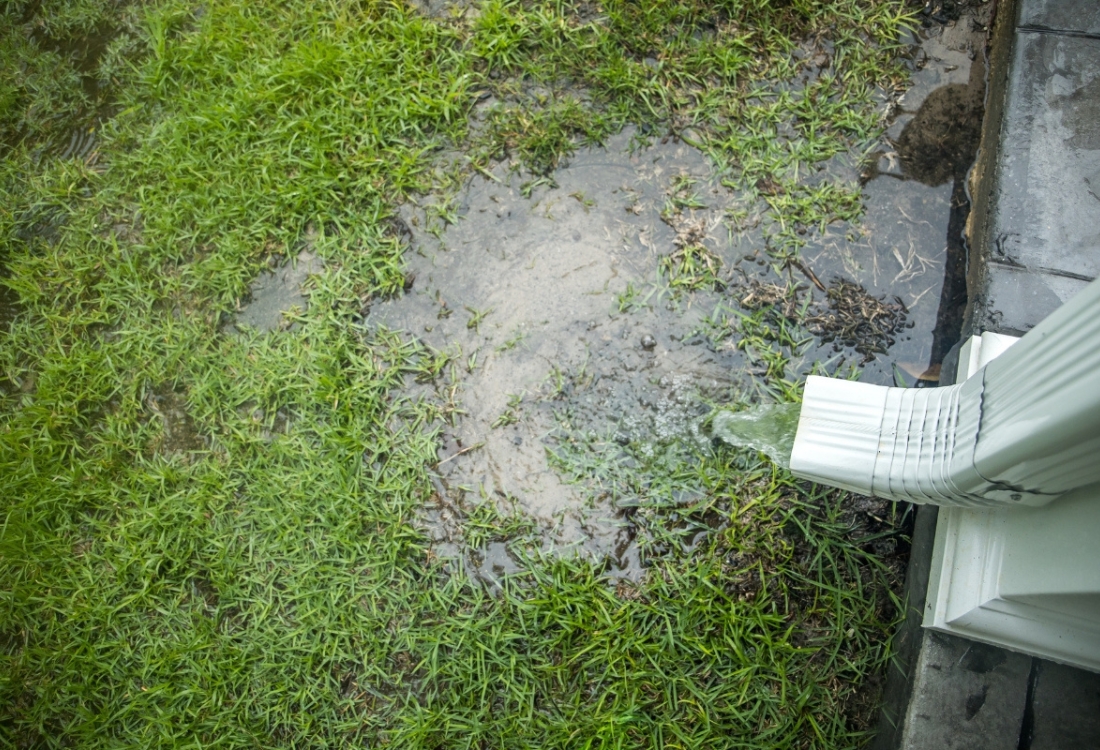
Knowing why foundation problems happen is just as important as spotting the signs. In Virginia, several conditions can trigger issues that lead to home foundation repair:
- Virginia soil & weather conditions – Virginia’s expansive clay-rich soils expand and shrink with moisture changes.
- Poor drainage & plumbing leaks – inadequate drainage causes water pooling near the foundation, which weakens the soil and leads to settlement.
- Tree roots & landscaping issues – roots growing under the foundation cause cracks or shifting in the foundation.
- Age, construction, and materials – older homes or those with poor-quality construction are more vulnerable.
Each of these causes of foundation damage puts pressure on your home over time. Left unchecked, they don’t just create cracks or leaks—they can grow into major structural problems. To understand why timing matters, let’s examine the real risks of ignoring foundation issues.
The Risks of Ignoring Foundation Issues
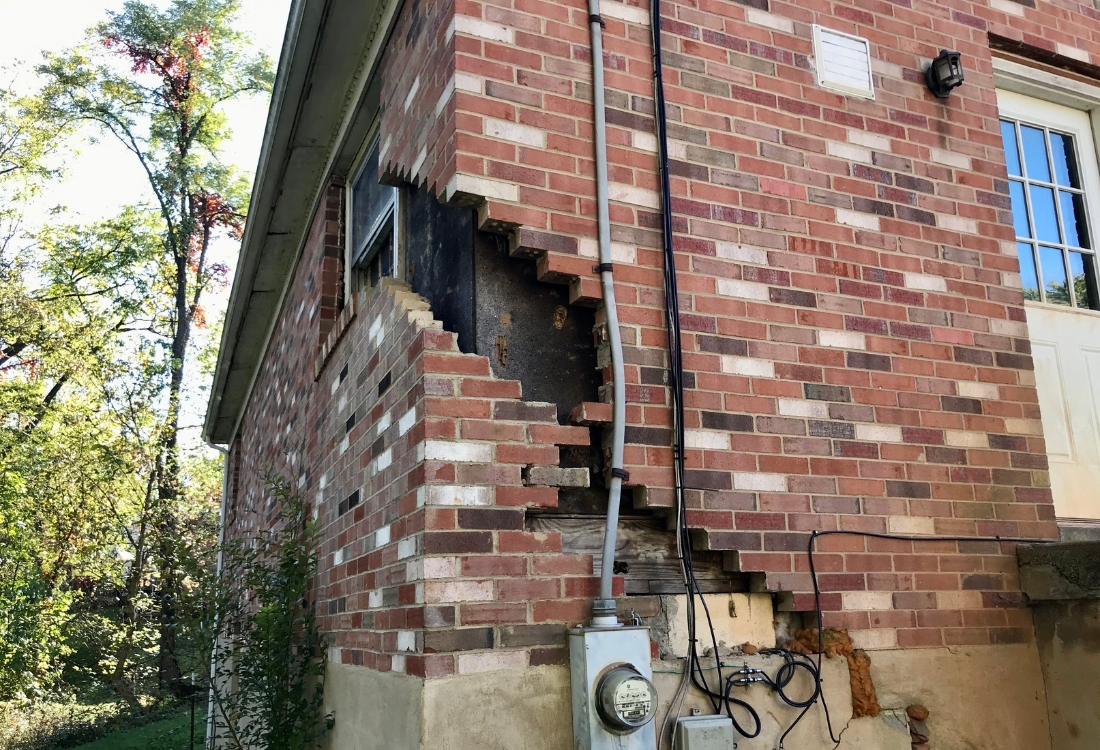
Ignoring foundation issues is like ignoring a leaky roof—the longer you wait, the worse the problem becomes. They rarely resolve themselves, and small issues can quickly escalate into major headaches and expensive repairs.
Here’s what could happen if repairs are put off:
- Structural damage & safety hazards – Foundation movement can weaken floors, walls, and support beams, putting your home and family at risk.
- Decreased home value – Buyers hesitate to invest in homes with unresolved foundation issues, lowering your property’s resale value.
Ignoring these problems doesn’t make them go away—it makes repairs more complicated and costly. By choosing to act early, you can mitigate structural risks and repair costs.
Best Foundation Repair Methods (2025)
The best solution for house foundation repair depends on the extent of the damage, the type of soil beneath your home, and the way your house was built. No two foundations are the same, which is why professionals use different systems to stabilize, lift, or reinforce the foundation.Below are some of the most effective foundation repair methods used for homes in Virginia.
Foundation Pier Systems for Settlement
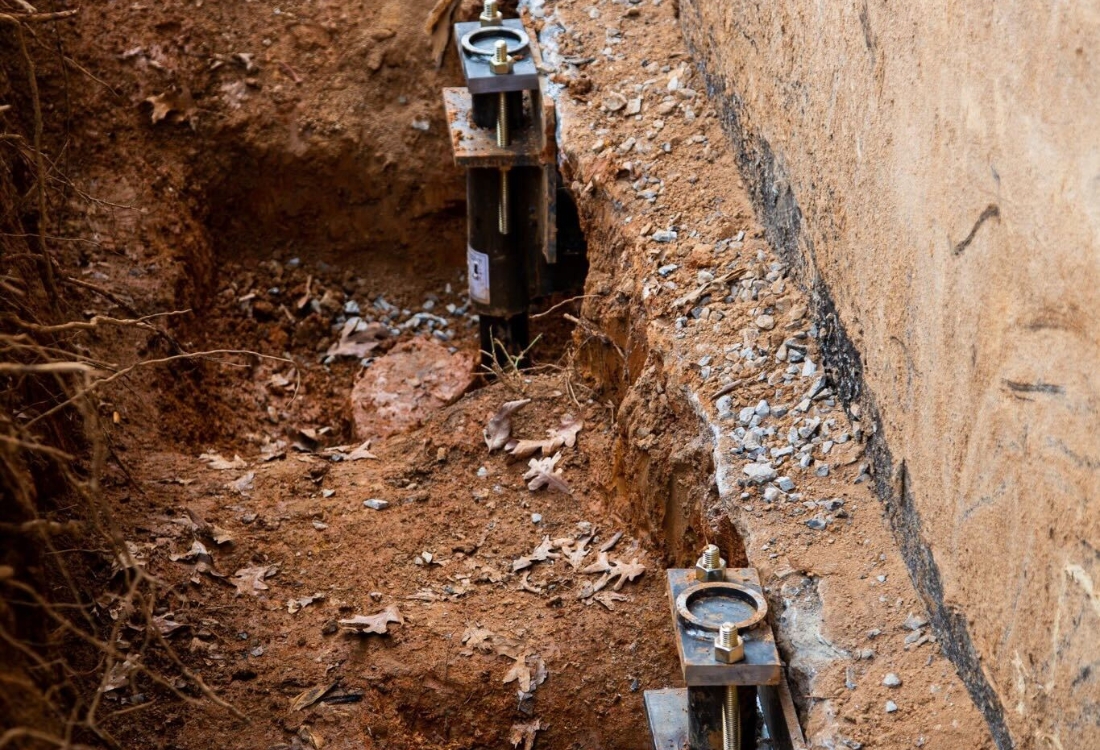
- Push Piers – Steel push piers driven deep into stable soil lift and secure sinking foundations, offering a permanent solution for settlement. They are ideal when the soil near the surface cannot support the structure.
- Helical Piers – Designed like giant screws, these helical piers anchor into strong soil layers. They are perfect for lighter structures such as chimneys or areas with unpredictable soil conditions.
- Slab Pier Systems – Built for concrete slab homes, these slab piers correct uneven floors and stabilize sinking slabs without full replacement.
Wall Stabilization & Reinforcement
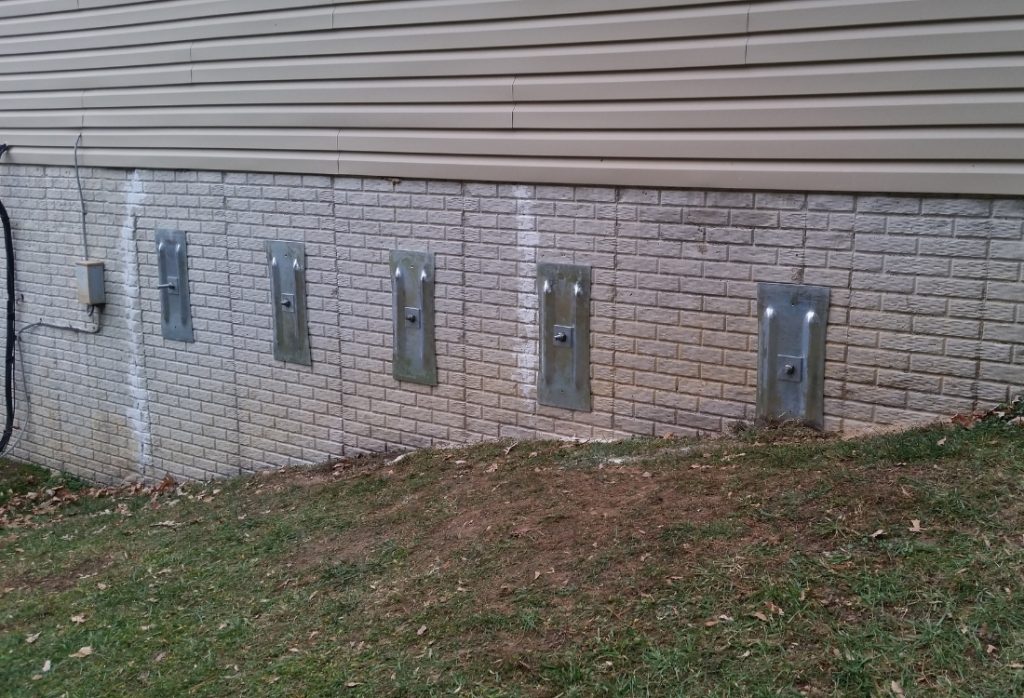
- Wall Anchors – Anchors brace failing basement walls by pulling them back toward stable soil, stopping further inward movement.
- Carbon Fiber – Thin but strong carbon fiber straps bonded to walls prevent cracking and bowing, creating lasting reinforcement without bulky hardware.
- Wall Stabilizer I-Beam – Heavy steel I-beams installed inside basements keep weakened walls in place and resist further wall movement from soil pressure.
- Helical Tie Backs – Helical tieback anchors, driven deep into the ground, apply an outward force, straightening bowing walls and restoring stability.
- Wall Rebar Pins – Steel rebar pins reinforce cracked foundation walls, tying sections together and strengthening weak spots.
Foundation Wall Repair & Replacement
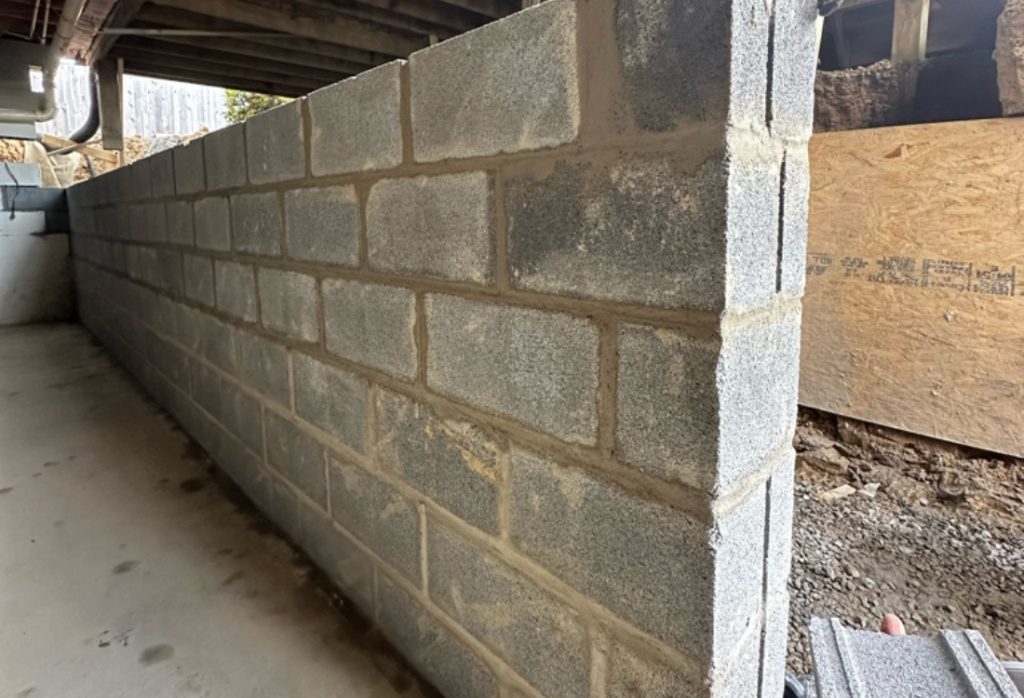
- Foundation Wall Replacement – In severe cases, damaged walls are removed and rebuilt to restore full structural integrity. This option is typically used when other repairs cannot save the wall.
- Concrete Foundation Crack Repair – Epoxy or polyurethane injections seal cracks, stopping leaks and preventing small gaps from spreading.
Foundation Repair Costs in Virginia
For many homeowners, the biggest question about home foundation repair is cost. Prices can vary widely, depending on several factors:
- Size of the home – Larger foundations require more materials and labor.
- Type of foundation – Slab, crawl space, and pier-and-beam foundations each have unique repair needs.
- Severity of damage – Minor cracks cost far less to fix than major foundation structural repairs.
- Chosen repair method – Solutions like piers or wall anchors are more expensive than sealing or drainage fixes.
- Accessibility – Hard-to-reach areas often increase labor costs.
Understanding these variables helps you budget realistically. But knowing what drives the price is only half the picture.
DIY vs Professional Foundation Repair
While some minor home foundation fixes can be tackled as DIY projects, it’s always best to consult a professional foundation repair contractor. They have the expertise and specialized equipment to diagnose the problem accurately and recommend the most appropriate solution, as well as warranties for peace of mind.
DIY repairs might be suitable for:
- Small hairline cracks
- Minor drainage issues
However, if it requires foundation structural repair, it’s crucial to call in the pros for:
- Large or widening foundation cracks
- Significant foundation settlement or movement
- Structural concerns
How to Find a Trustworthy Foundation Repair Contractor in Virginia
Choosing the right contractor for residential foundation repair is just as important as the method itself.
Here are key things to look for when hiring a foundation structural repair contractor in Virginia:
- Experience and Expertise: Look for a contractor specializing in home foundation repair with a proven track record of successful projects and knowledge about permits, building codes, and plans.
- Licenses and Certifications – To protect yourself from liability, ensure the contractor is licensed, insured, and familiar with Virginia’s foundation repair codes.
- References and Reviews – Check online reviews and ask for references to gauge reputation and customer satisfaction.
“We got multiple quotes when we discovered structural damage, and LUX had the best one by far. They explained what was going on, the process to fix it, and everything went as planned. The team was respectful, professional, and left our home spotless. Highly recommend LUX for any structural needs.”
— Jessica Marie, Virginia homeowner - Detailed Estimates – Always get written estimates from multiple contractors to compare prices, services, and warranties.
Working with a trusted contractor ensures your foundation repair is done correctly and backed by warranties and long-term support. At LUX, we specialize in proven solutions tailored to Virginia’s unique soil and weather conditions, helping homeowners protect their most valuable investment with confidence.
Foundation Maintenance Guide for Virginia Homeowners
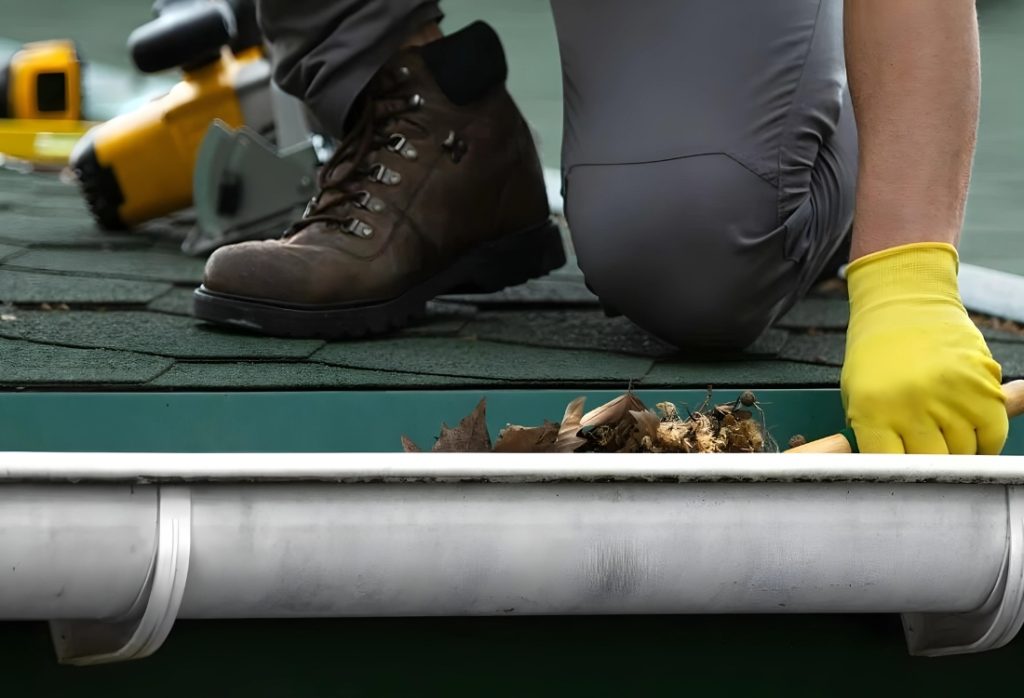
Preventing problems is always more affordable than repairing them. With Virginia’s mix of clay soils, heavy rains, and seasonal weather shifts, regular foundation maintenance is essential for protecting your home. Here are three key practices:
- Drainage & Moisture Control – Keep gutters clear, extend downspouts, and grade soil away from your home to prevent water pooling near the foundation.
- Landscaping & Root Management – Plant large trees at least 15–20 feet from the house and trim roots that grow too close to avoid soil shifting.
- Annual Inspections & Preventative Care – Walk around your home once a year to check for cracks, leaks, or uneven floors. Some minor issues may be manageable with a DIY home foundation fix, but larger problems require professional foundation inspection and repair.
Regular upkeep lowers risks, helps you avoid expensive house foundation repairs, and protects your home’s long-term stability.
Ready to Protect Your Virginia Home?
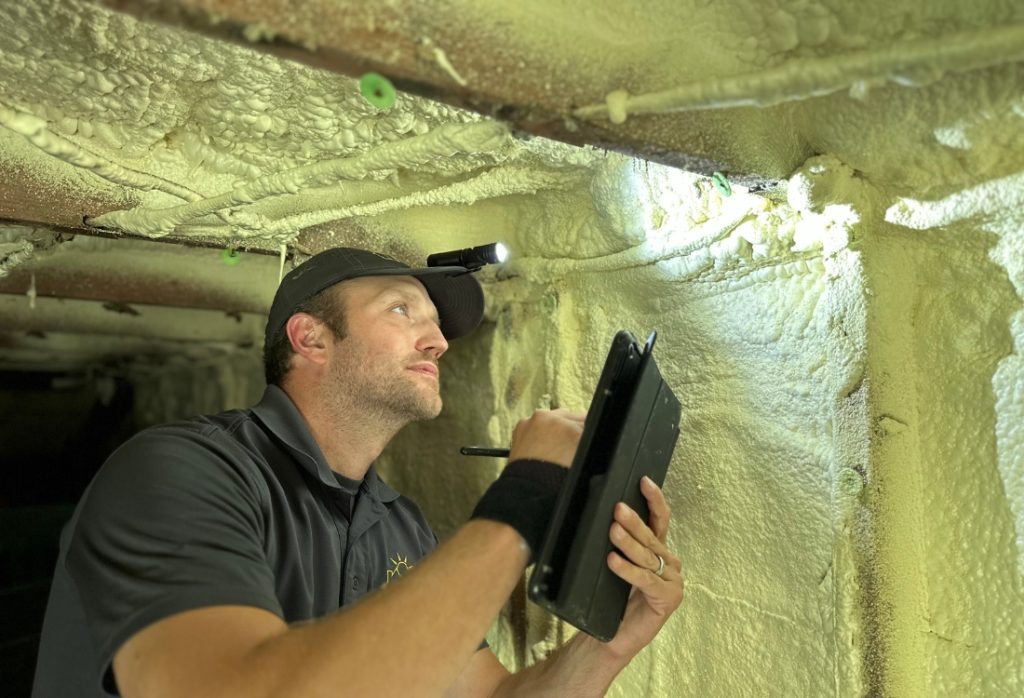
Your home is your most significant investment, and its foundation is what keeps everything standing strong. If you’ve noticed cracks, uneven floors, or other warning signs, don’t wait until small issues become major repairs.
At LUX Foundation Solutions, we’ve helped Virginia homeowners stabilize, repair, and protect their foundations using proven home foundation repair services tailored to local soils and weather conditions. Whether you need an inspection, minor repairs, or a full stabilization system, our team is here to guide you every step of the way.
Call us today at 540-508-8587 to schedule your free foundation assessment and get peace of mind knowing your home is safe and secure.
Frequently Asked Questions
What are the most affordable foundation repair options in Virginia?
Affordable options often include sealing small cracks, adding drainage systems, or making minor adjustments to prevent further movement. These costs are far less than those of structural repairs. For serious settlement or bowing walls, professional solutions such as piers or anchors may be necessary, but early intervention helps keep costs down.
What is the best foundation repair method?
The best method depends on the specific issue with your home. Push piers or helical piers are often used to stabilize foundations that are settling, while wall anchors and carbon fiber straps are effective for addressing bowing walls.
A licensed contractor will recommend the most reliable solution for your specific home.
How long do home foundation repairs last?
When installed correctly, professional foundation repair methods, such as piers, anchors, and carbon fiber, can last for decades. Many come with transferable warranties, giving homeowners long-term confidence.
Can foundation problems be fixed permanently?
Yes. While no repair can stop soil movement, modern systems like steel piers and wall anchors permanently stabilize the foundation. With proper maintenance, most repairs provide lasting results.
Can I stay in my house during foundation repair?
In most cases, yes. Many home foundation fixes, like pier installation or crack sealing, can be completed while you remain at home. Larger projects may require limited access to certain rooms during the work.
Is home foundation repair covered by homeowners’ insurance?
You should contact a licensed home foundation repair contractor in the state of Virginia. At LUX, we specialize in foundation inspections and proven repair methods tailored to local soils and weather conditions.
